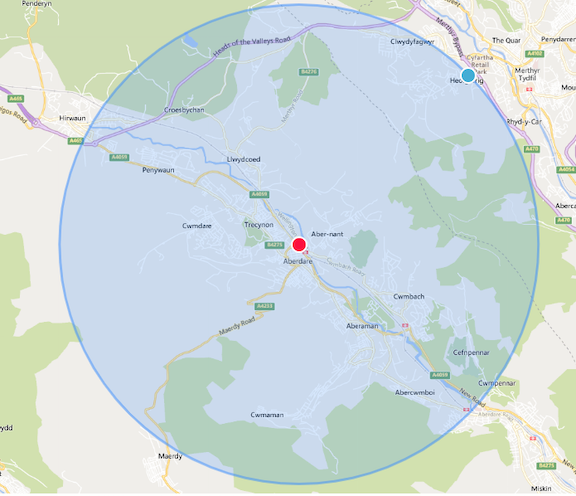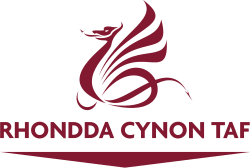Home to School Transport changes agreed by a 20-year Labour controlled council you get what you vote for

Residents in Rhondda Cynon Taf (RCT) are expressing profound concerns over recent decisions by the Labour Run Council to increase the walking distances for school children, particularly in light of the ongoing cost of living crisis. The decision to move school transport provision in line with statutory distance criteria, extending eligibility from two miles to three miles, has ignited widespread apprehension and criticism within the community.
Families across RCT are deeply troubled by the implications of this decision, especially considering the region’s typical weather patterns. With over 176.54 rainy days annually and an average precipitation of 99.51 millimetres, children forced to walk longer distances face heightened health risks and potential discomfort, particularly during inclement weather conditions.
Furthermore, concerns have been raised regarding the safety of designated walking routes, particularly in areas where traffic congestion is already a significant issue. Residents highlight instances of poor planning, such as the placement of pelican crossings near roundabouts on the Aberdare bypass, instead of investing in safer infrastructure like bridges. Additionally, the allocation of significant funds to unnecessary projects, such as the footbridge into Pontypridd Park, and further millions wasted on vanity schemes ony raises questions about the council’s priorities and the Welsh Governments priorities.
We understand Karl Johnson, a Conservative councillor, has exhibited genuine concern for the safety of children by raising pertinent issues regarding the public consultation process. His apprehensions stem from his personal assessment of walking routes, which he deems unsafe after physically traversing them. This demonstrates his proactive approach to understanding the challenges faced by children who may use these routes daily.
Moreover, Cllr Johnson’s skepticism regarding the projected £2.5 million saving highlights his commitment to ensuring that cost-cutting measures do not compromise children’s safety. He rightly questions the feasibility of routes that may require significant capital investments and emphasizes the necessity of up-to-date health and safety risk assessments.
Cllr Johnson’s reference to the Bus Services (Wales) Bill further underscores his dedication to safeguarding children’s interests. By advocating for a temporary halt in actions until walking routes are reassessed, he demonstrates a strategic approach to decision-making, aligning it with potential legislative changes that could impact public transportation. Additionally, his proposal to collaborate with Transport for Wales and regulatory bodies reflects a proactive stance in seeking sustainable solutions to improve bus routes for local school children.
In essence, Cllr Johnson’s concerns and proposals underscore his genuine commitment to prioritizing children’s safety and well-being in transportation planning decisions.
Councillor Karen Morgan, leader of the Plaid Cymru group, has echoed these concerns, emphasizing the detrimental impact of increased costs associated with the school day on families already grappling with economic challenges. She warns that further financial burdens, such as longer walking distances, could prove overwhelming for many households, exacerbating existing hardships.
Moreover, Cllr Karen Morgan highlighted the safety implications of children having to walk longer distances to school, particularly amid concerns about extreme weather conditions exacerbated by climate change. She underscores the importance of ensuring equality in education and calls for comprehensive consideration of the impact of policy decisions on all students.
In addition to these concerns with an increase in pollution expected from the extra traffic the decision from the labour-run RCT Council, residents highlight the council’s contradictory stance on addressing air pollution. While the RCT Labour-run council emphasizes efforts to tackle air pollution, decisions that could potentially increase pollution levels outside schools and along approach roads have raised significant alarm. Residents question the disconnect between rhetoric and action, particularly regarding the inability to regulate pollution from school buses and taxis waiting outside schools. Residents can expect more congestion with additional traffic on already overcrowded roads around school times
The enduring trend of consistently electing the same political party to lead our local council for the past two decades raises serious concerns about the health of our democracy. Despite ongoing concerns and critiques, the majority of Rhondda Cynon Taf (RCT) residents continue to cast their votes in favor of Labour representatives, perpetuating a one-party dominance that undermines the effectiveness of opposition voices in challenging council decisions.
This persistence of one-party rule has led to a lack of diversity in perspectives and governance approaches within the council. With decisions predominantly made by members of a single party, there is a glaring absence of meaningful opposition and critical scrutiny. As councillors consistently toe the party line without robust challenge, the result is unchecked power and diminished accountability.
By repeatedly voting for the same party, residents inadvertently contribute to a system where dissenting voices are marginalized and decision-making lacks the necessary checks and balances. This stifling of alternative viewpoints stifles innovation, hampers progress, and erodes the fundamental principles of democracy.
It is imperative that residents reflect on the implications of perpetuating one-party dominance within our council. By diversifying representation, fostering a culture of accountability, and embracing alternative voices, we can ensure a more vibrant and inclusive democratic process in Rhondda Cynon Taf.
Parents also expressed safety concerns regarding the designated walking routes. For example, the route from Penywaun to Aberdare spans approximately 2.4 miles via A4059 and Hirwaun Rd, raising questions about the safety of children crossing the Aberdare Bypass. Similar concerns arise for routes from Abercwmboi and Cwmaman to Aberdare, where children may be required to walk distances of approximately 2.5 to 2.8 miles, respectively, along potentially unsafe roads.
In light of these multifaceted concerns, residents urge the council to reconsider its decision and prioritize the safety and well-being of children in the community. Investing in safe infrastructure and exploring alternative solutions are essential steps to address the challenges posed by increased walking distances for school children within Rhondda Cynon Taf.
Below is shown a 3-mile radius of some schools in Cynon Valley this is how far Labour Councillors want your children to walk from home to school and back home again.
St John Baptist C in W High School

Mountain Ash Comprehensive School






